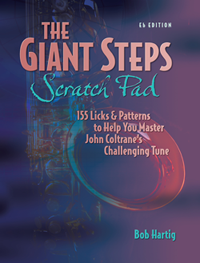When I got the news last night that Phil Woods had died the day before, on September 29, 2015, I was stunned. Not Phil Woods! Not my main man, my hero on the alto sax whom, among all the luminaries of the instrument, including even Bird and Cannonball, I have admired and learned from the most. Not Phil.
But of course, why not? We all go at some point, and Phil was eighty-three and in poor health. He had lived a full life; he had seen a huge slice of jazz history and carved his own considerable niche in that history; he had accomplished things that most musicians only dream of; and in the process, he left a legacy of music richer than the mines of Moria.
I first heard of Phil back in my early twenties in music school. I heard him described as a “lyrical” player, and while I didn’t know what the word meant, I determined to find out. So I purchased an album of Phil’s titled I Remember, and “lyrical” acquired meaning through melody and timbre. Here was this beautiful tone, so full of warmth and joy and body, married to an incredible sense of swing. And here was a way with a ballad that just . . . well, I listened to the tune “Paul” over and over and over, mesmerized. The way Phil played it—so beautifully, so sensitively, so full of emotion—moved me to tears. I mean that most truly. Phil Woods could render a ballad with such sublimity and freshness and, above all, sincerity, that I would quite literally weep. His solo on Michelle Legrand’s “The Summer Knows” took my breath away the first time I heard it, and it still does. Lyrical? The word doesn’t begin to describe what Phil Woods could do with an alto sax.
But of course, ballads were just a part of what Phil played with excellence. He could cut through the most harmonically complex changes—bop tunes such as “Hallucinations”—at frantic tempos with an ease and inventiveness that left other players, even the most accomplished, in the dust. And you always knew it was Phil playing. There was no mistaking that sound and that approach.
I heard Phil play live three times. My most memorable was with my brother Pat, who, when I visited him years ago in Port Townsend, Washington, had made reservations for dinner at Jazz Alley in Seattle. There I sat, dining on steak while Phil and his combo blew incredible sounds from the stage just twenty feet from our table. It doesn’t get any better than that.
Now Phil is gone. The man and the horn that blazed their long, meteoric trail across the jazz firmament have flamed out at last. But like Bird, whom he so deeply admired, Phil lit a torch whose brightness burns in the horns of countless altoists worldwide. Phil Woods has many children. I am proud to be one of them.
Thank you, Phil. You gave this world much beauty, and you showed the way beyond Bird for alto players like me. Now you reside among the legends. You will be missed. And the music you made ensures that you will never, ever be forgotten.

